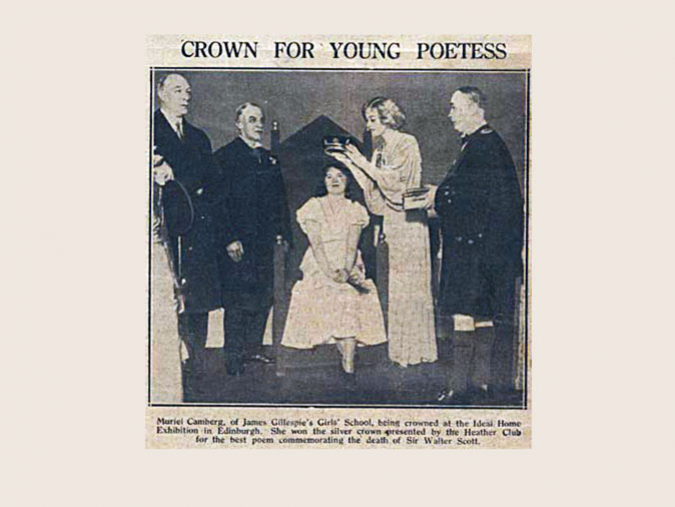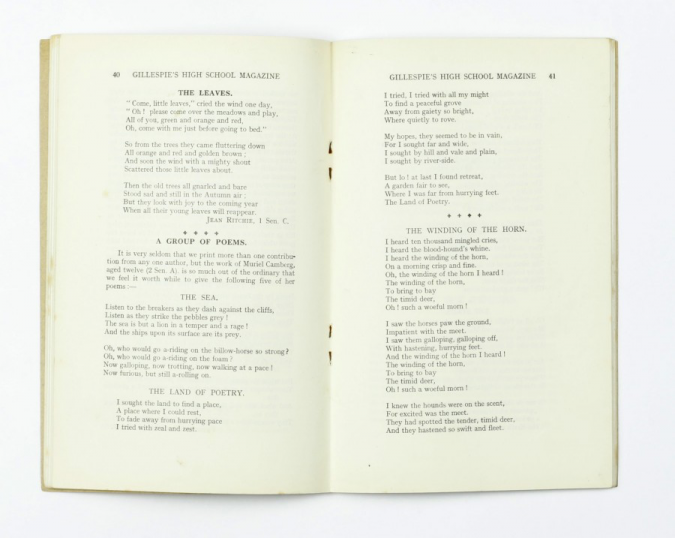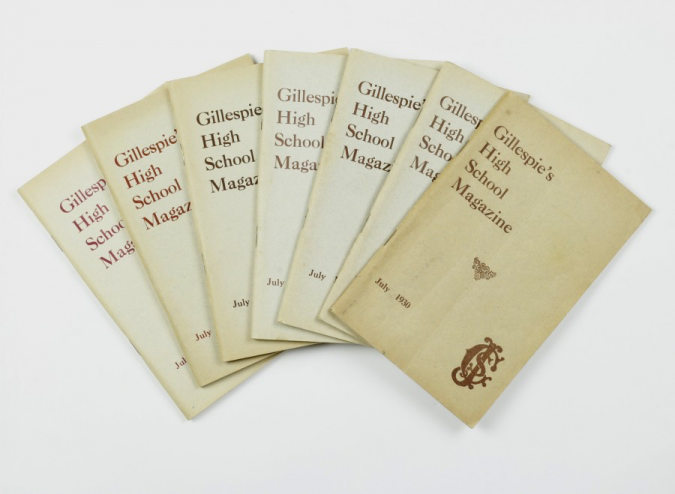The joy of a favourite writer's juvenilia is surely in the glimpses it gives of the body of work yet to be assembled. The Cynic, a school magazine Evelyn Waugh founded in 1916, aged 13, promised on its cover to be "cynical without being cheaply so, piquant in moderation, racy in excess". And so it proved, as did Waugh. But to foreshadow, it has to exist, and much juvenilia - take Auden's first poem, a Wordsworthian sonnet about a Lake District tarn, has never been found and was not recorded beyond its initial composition.

Therefore to know that a great store of juvenilia does exist for a writer, and then to find it, feels a rather good day's work. This is the case with a set of James Gillespie's School Magazines from the 1930s which record the very early work of Muriel Spark (then Muriel Camberg). Though later known chiefly as a novelist, Spark always considered herself a poet, and these early poems - charting her development from the ages of twelve to sixteen - are a stockpile of her early influences, from Yeats to Masefield, and truly showcase her precocity. I have examined the poetic quality of this early work in an article in the Times Literary Supplement.

More than their poetic value, there is their ephemeral nature and biographical importance. In an essay in the New Yorker about the influence of her time at Gillespie's on her work, and particularly on how her teacher Miss Christina Kay was the basis for her later creation Miss Jean Brodie, Spark wrote "My poems in the school magazine were often influenced by Miss Kay's lessons on relativity. One of the library books recommended by her was "The Mysterious Universe," by Sir James Jeans, a famous popular astronomer. I wrote poems about the universe, such as one in which the inhabitants of other planets "Look up to the sky and say / 'The Earth twinkles clearly tonight.' Miss Kay predicted my future as a writer in the most emphatic terms." That poem, The Stars, appears in the first issue in this set, for 1930.

This volume, being the earliest volume, perhaps shows her early talent most explicitly. Indeed, her submissions are the only to be prefaced with an introduction: "It is very seldom that we print more than one contribution from any one author, by the work of Muriel Camberg, aged twelve (2 Sen. A) is so much out of the ordinary that we feel it worth while to give the following five of her poems".

Tom Ayling
Read more about Muriel Spark and her work in our specialist author catalogue
ecat spark interactive.pdf (2.89 MB)
Recent Posts
- The Evolution of Crime
- Tour The Bookshop On Your Screen
- The Genesis of Mr. Toad: A Short Publication History of The Wind In The Willows
- Frank Hurley's 'South'
- The "Other" Florence Harrison
- Picturing Enid Blyton
- Advent Calendar of Illustration 2020
- Depicting Jeeves and Wooster
- Evelyn Waugh Reviews Nancy Mitford
- The Envelope Booklets of T.N. Foulis
- "To Die Like English Gentlemen"
- Kay Nielsen's Fantasy World
- A Brief Look at Woodcut Illustration
- The Wealth Of Nations by Adam Smith
- What Big Stories You Have: Brothers Grimm
- Shackleton's Antarctic Career
- Inspiring Errol Le Cain's Fantasy Artwork
- Charlie & The Great Glass Elevator
- Firsts London - An Audio Tour Of Our Booth
- Jessie M. King's Poetic Art, Books & Jewellery
Blog Archive
- January 2024 (1)
- January 2023 (1)
- August 2022 (1)
- January 2022 (1)
- February 2021 (1)
- January 2021 (1)
- December 2020 (1)
- August 2020 (1)
- July 2020 (2)
- March 2020 (3)
- February 2020 (2)
- October 2019 (2)
- July 2019 (2)
- May 2019 (1)
- April 2019 (1)
- March 2019 (2)
- February 2019 (1)
- December 2018 (1)
- November 2018 (1)
- October 2018 (2)